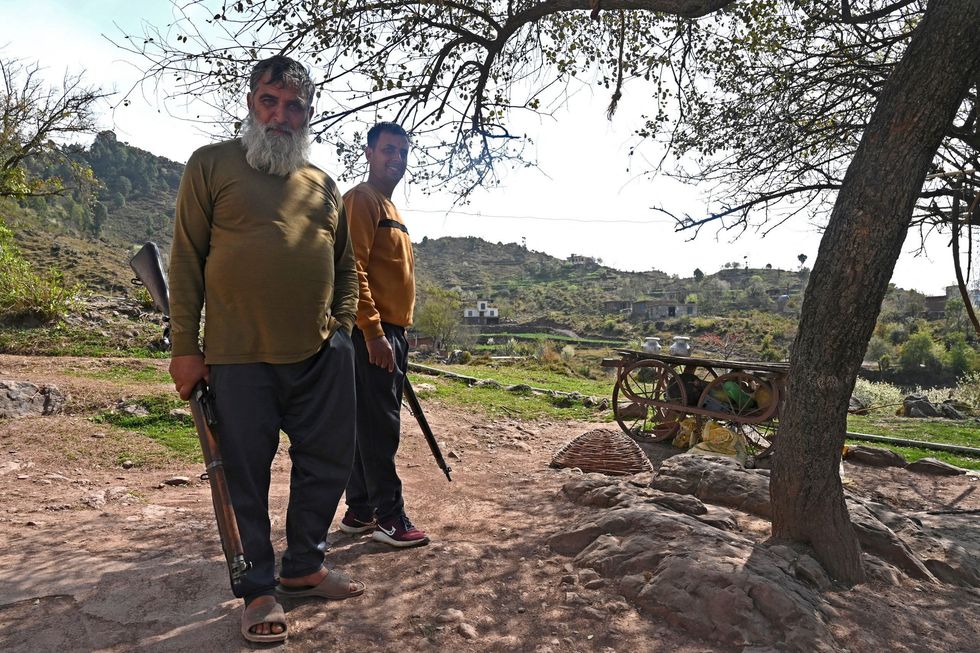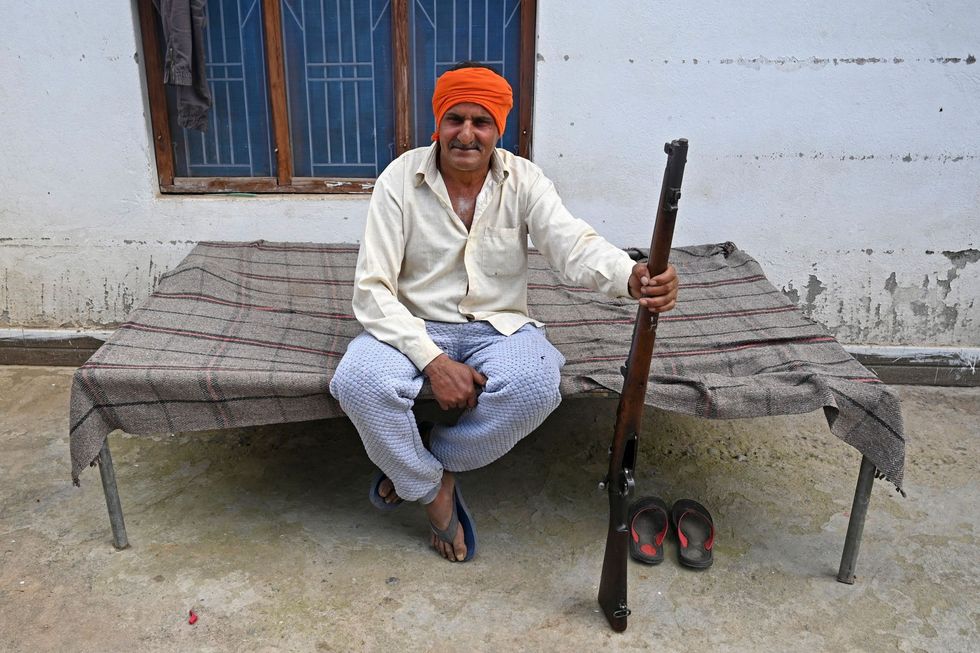A plan by the Indian government to train and arm civilians in Kashmir to fight off rebel attacks has divided opinions among local residents.
Known as Village Defence Guards, the militia units were launched last year after several murders targeting police officers and Hindu residents of Kashmir.
The scheme has been broadly popular among the region's Hindu residents, but Muslim villagers are concerned the militia will only exacerbate Kashmir's woes.
“My worry is about the way weapons are now being distributed among only one community,” said one elderly Muslim living in Dhangri, who asked not to be named.
“Now weapons are being brandished around by young ones. This is not good for any one of us,” he told AFP. “I sense a growing tension.”

India has more than half a million soldiers permanently stationed in parts of Kashmir. However, some residents are in favour of the initiative.
Civil servant Sanjeet Kumar is one of 5,000 Kashmir villagers who have joined all-Hindu militia units armed and trained by Indian forces.
Brandishing a bolt-action rifle, the 32-year-old municipal worker in the electricity department told AFP, “Anyone who turns a traitor to our nation is my target.”
A deadly rebel assault in Kumar's frontier village in January prompted him to sign up. "We were totally terrorised by the attack," Kumar said.
Wearing a saffron-coloured tilak on his forehead to mark himself as a member of the Hindu faithful, he said he was ready and able to defend his home.
Many residents of Dhangri, the remote hamlet where Kumar lives, are still grief-stricken by the January attack that claimed the lives of seven of their neighbours, which police blamed on Pakistan-based militants.
"With or without the weapons, we're terrorised," said farmer Murari Lal Sharma, 55, as he cradled his loaded .303 calibre rifle.
"But now I will fight back."
One Indian paramilitary officer said the newly armed villagers were on such a constant state of alert that his unit informed them beforehand of their night patrol, so that they were not accidentally mistaken for militants and fired upon.
"The purpose is to create a line of defence, not a line of attack," said Kanchan Gupta of India's information ministry.
India first created a civil militia force in Kashmir in mid-1990s as a first line of defence when the armed rebellion against Indian rule was at its peak.
About 25,000 men and women, including teenagers and some Muslims, were given weapons and organised into village defence committees in Jammu region.
Rights groups accused members of these committees of committing atrocities against civilians.
At least 210 cases of murder, rape and extortion blamed on the militias were prosecuted, official records show - though fewer than two per cent of defendants were convicted.
Gupta said these cases were individual acts and there was no record of organised crime by the militias.
"There is always a chance that a few may turn rogue," he said. "It's not possible to control everyone."
Most of the committees became dormant as Indian troops gradually throttled the insurgency and the security situation improved.

This time around, militia members are warned by trainers from the paramilitary Central Reserve Police Force (CRPF) that they would be punished for misusing their rifles.
"Alongside training them in firing, maintenance and cleaning of the weapons we also tell them what legal action will be taken for misuse," CRPF spokesman Shivanandan Singh aid.
Three people have nonetheless been killed since the new Village Defence Guards were established, including two who died by suicide using weapons issued to the militias.
The wife of another member was killed in January when her husband's rifle accidentally discharged.
But the reservations of some neighbours have not stopped men in the villages around Dhangri from clamouring to get their own arms.
"Now there are guns in houses all around mine," said Ajay Kumar, a flour miller and ex-serviceman, pointing out the homes of neighbours who had been given arms.
"Whenever needed, I will take full advantage of my weapon."
(AFP)

















 Kap’s Cafe in Surrey was struck by gunfire late at night with staff still insideInstagram/
Kap’s Cafe in Surrey was struck by gunfire late at night with staff still insideInstagram/ Kaps Cafe Instagram Story Instagram Screengrab/
Kaps Cafe Instagram Story Instagram Screengrab/ Kaps Cafe Instagram Story Instagram Screengrab/
Kaps Cafe Instagram Story Instagram Screengrab/

